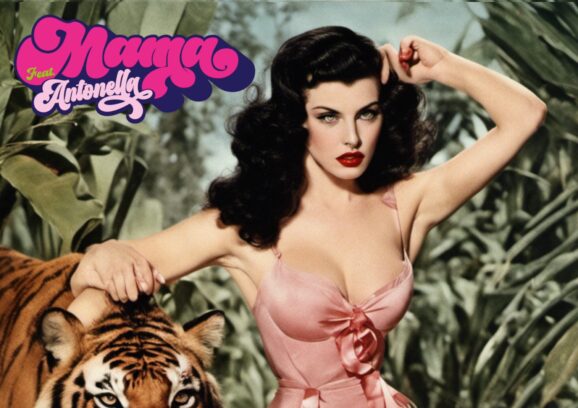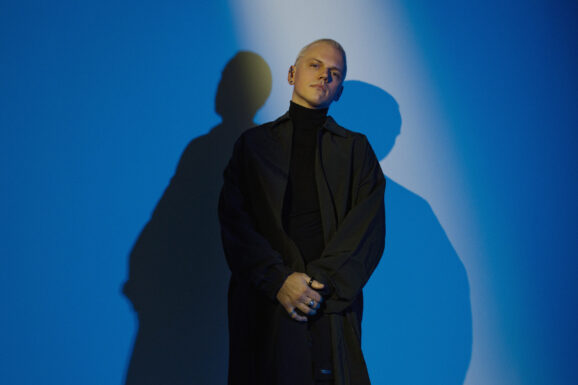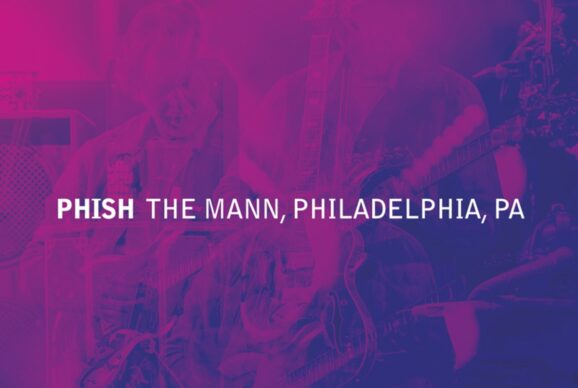
Do you ever wonder if professional musicians are really happy? They claim to love their time on the stage but most of the other hours tend to be a series of bus rides, generic dressing rooms, interviews with journalists and lots of sitting around doing nothing. After a while this can become insanely monotonous. But if you listen to Megadeth’s bass player Dave Ellefson talk, you get the impression that life on the road and in the studio is nothing short of total bliss.
After growing up in Minnesota, Ellefson moved out to California and joined forces with Dave Mustaine to form Megadeth in 1983. After recording such classic metal albums as Rust In Peace, Killing Is My Business …, Peace Sells and Youthanasia, the band just finished up their Gigantour with Motorhead, Lacuna Coil and Volbeat, not to mention a May co-headlining tour with Rob Zombie. About to head over to Europe for the month of June, Ellefson called in last month to talk with Glide about Megadeth’s latest recording TH1RT3EN, his youth on a farm in Minnesota, and how he lives and breathes being a musician.
Where did you grow up and what was your childhood like?
I grew up on a farm, actually a pretty big family farm, in a little town called Jackson, Minnesota, down in the southwestern part of the state just across the border from Iowa. I was introduced to music on my mother’s Wurlitzer organ, taking lessons from the church organist (laughs). Then I took up tenor saxophone in fifth grade band and then I took up bass guitar at age eleven and that’s what changed my life forever. I started putting bands together by the time I was twelve and basically been doing the same thing ever since.
 But you’re still enjoying it and that is the great part about it.
But you’re still enjoying it and that is the great part about it.
I love it, of course. It’s the last thing I think about before I go to bed and it’s the first thing I think about when I wake up in the morning.
What kind of farm did your family have?
It was a grain farm, corn and soybeans. My dad had some cattle when I was really, really young and his father, my grandfather, was, I think, a cattle seller through the Midwest. I basically come from a farming industry background for my family.
Were you interested in doing that as well?
No, I wasn’t. I did a lot of work on the farm growing up, which I think was a good thing. It taught me work ethic and that there are no shortcuts. If you want to get it done right, you got to do it yourself. You have to, obviously, learn how to manage people if you’re going to grow your business and have farmhands and stuff like that, like my dad did. You know, it’s funny. A musician’s life is a lot like a farmer’s life because it can be feast or famine and there are a lot of things out of your control. Like in a farmer’s life it’s the weather and in the music business it could be everything from the public’s taste of music to the change of a record industry; there’s all kinds of different things that can change.
My father had a big thing during Reaganomics where the banking business and land prices, things we just experienced with the home market and the housing market; the same thing happened in the farming industry and my dad got bit by it a little bit back in the late 70’s and early 80’s. That’s similar in the music business to maybe the internet and the record business (laughs). Things change in businesses and industries evolve and you have to be able to roll with the punches and go with the changes. My brother, who is a year and a half older, took over the family farm and he’s doing really well because he’s younger and he’s progressive and he looks at the world with different eyes. And that’s often what happens in the music business, you know. New artists come along, new people come along and they change the sound of music, they change things artistically and that keeps music and the arts fresh. So there is room for all of it. There’s room for the new guys and obviously we have to look to those who have done it before, the icons and the legends, because they’re the ones who paved the way for all of us too.
How did you discover rock & roll out there on the farm?
You know, most of what I heard, I heard on the school bus in the morning when I was riding to school, on WLS AM radio out of Chicago. Ironically, the Pastor’s son was this really cool guy and he had long hair and he always listened to rock & roll on the radio (laughs) and that’s how I got turned on to things like Sweet’s “Fox On The Run”, Styx’s “Lady” and “Lorelei”, KISS “Shout It Out Loud” and Bachman Turner Overdrive’s “You Ain’t Seen Nothing Yet”, and those kind of songs. Those were the songs that were my early exposure to rock & roll. It was either that or it was like Motown on the radio.
So I loved rock & roll and that’s what got me interested in getting a bass and then I grew up playing. As I got introduced to musicians in the area, they turned me on to other things like Ted Nugent and Lynyrd Skynyrd and that eventually turned into Iron Maiden and Motorhead and Venom. By the time I moved to Los Angeles, I met Dave in 1983 after I graduated high school, and I met Dave within about a week and we started Megadeth. Then we were the next ones up to bat to take the baton and create and carve the next path for heavy metal.
 Do you remember the first band you were in?
Do you remember the first band you were in?
It was actually a drummer and a guitar player who were in my brother’s class, so two school years ahead of me, because I was a young kid. I was eleven when I got my bass and I was the youngest guy around and because I was so into playing the bass I got pretty good at it pretty quickly. My reputation spread around the area that I could play, which is good being the younger guy. I was really groomed and taught by guys who were sometimes two, three, four, five years older than me. And I could hold my own. It taught me how to hold my own against guys who could play really good. I learned a lot from them but it also taught me how to hold my cookies and not blow my lunch in front of people (laughs).
It was a great experience to be the young up and coming kid who could dazzle on the bass. Even in Megadeth, for many years I was always the youngest guy in the band but I was used to being like that. It taught me how to get along with people, it taught me to work within a group dynamic. My first band it was me, and the guitar player sang and played of course, and the drummer. We tried to come up with the most haunting evil name we could, so me being a twelve year old, our band was called Headstone (laughs), which is about as threatening that we could be at twelve and fourteen years old. I remember our first concert was, I think, for our parents out on the porch at the guitar player’s house. He had this tube amp that would stop working all the time so he’d have to turn around and actually bang on it with his fist to get it working again. Those are my early experiences in show business.
What about the first concert you went to? I’m picturing you in this big rural area with lots of farmland around for miles on end.
That is exactly what it looked like. Everything was square miles of farmland and for as far as the eye could see. And flat, just totally, totally flat. I remember I became a KISS fan by the time I was 12. That was the first band I was all in. I was just truly a fan. I remember when they came to Minneapolis-St Paul. It was 1977 on their Rock & Roll Over Tour and my mom took me and another guitar player buddy of mine. We had at this point gotten into a band together, a new band. So it was me and him and my brother’s friend, and my mom and her friend chaperoned us up there. It was KISS and Uriah Heep at the Met Center in Bloomington, Minnesota. I remember tickets were $5 bucks in advance, $6 bucks day of show. I remember going and I’d never ever seen such a thing. It was just remarkable, so unbelievable. I couldn’t believe the sound, the lights, the PA; just the event of it all was just ginormous.
Did that seal your fate?
It totally did, absolutely. I went home to my basement with my little combo amp and went, “I want to do that, how do I do that?” There is a saying, “Begin with the end in mind” and I think seeing KISS and hearing these songs on the radio, I began with the end in mind. That was the goal, that was what I was aiming for. So it’s nice to have something to shoot toward rather than fumbling around in the dark.
Who was the rock star that you met?
Well, I didn’t really meet anybody until I moved out to Los Angeles in 1983. At that time, Los Angeles/Hollywood was full of, I mean, the metal scene was full tilt. So I don’t even know. I mean, everybody was around: Blackie Lawless from WASP, the guys from Ratt, the guys from Motley Crue. I remember seeing David Lee Roth at a bar one time and I was a huge Van Halen fan. You know, he’s probably the first one because a lot of those other guys, by playing with Dave and being part of Megadeth, we were really contemporaries of those bands. David Lee Roth was a full-blown real rock star. And years later I remember meeting Gene and Paul from KISS and that was a huge moment because these guys, as much as I was now a contemporary with them, Megadeth being in the same industry and even playing festivals and shows with KISS, these were the guys who inspired me and were like mentors to me. So there was still an awe and respect for them.
 You’re about to go out on a small tour with Rob Zombie. That ought to be interesting.
You’re about to go out on a small tour with Rob Zombie. That ought to be interesting.
It’s only about three and a half weeks that we’re doing with Rob. It’s a co-headlining tour, mostly on the East coast, Midwest, a couple festivals like Rock On The Range and Rocklahoma. We’ll finish it up at the end of May. I think it’s going to be cool. It’s funny, White Zombie opened for Megadeth back in like 1993. It was White Zombie, Pantera, and Megadeth was the headliner. So obviously Rob has done very well for himself, transitioning into being a solo artist and being a film maker and I am definitely a fan of his music, a fan of his films. Rob is a cool guy, got a cool vibe about what he does artistically and I think it’s a cool match because recently, the last couple of years, most of the touring we’ve done has been within our own genre: the Big 4, touring with Slayer and Anthrax. So these things have been within our genre. So doing this tour with Rob Zombie actually puts Megadeth a little out of genre and I think that that’s cool because I think a lot of Rob Zombie’s fans have probably grown up in and around Megadeth’s influence and at the same time it’s cool that we can play to Rob’s audience as well.
What happens after the tour? What does Megadeth have in the works?
We go to Europe for the whole month of June and play festivals, some we’re headlining and others where we’re a guest on. After that we are actually now putting dates on sale for South America for a big Latin American run in September.
How do you feel about Megadeth’s latest recording, TH1RT3EN?
I’m very happy with it. I think it’s a really cool CD. I love the diversity of it. I’m happy coming back, this being the first CD that I’ve played on with Dave in quite a few years. I’m happy that it’s something that is pretty broad-based. It’s got great thrash tunes with “Sudden Death” and “Never Dead” and “New World Order”. It has some really good mainstream, kind of what I would consider hard rock/metal tunes like “Black Swan” and “Public Enemy No 1”. Then it’s got some other things that really stretch the boundaries with like “13” and “Millennium Of The Blind”, for instance. I’m really happy. It’s a very well-rounded Megadeth CD.
When I was talking to Chris Broderick [Megadeth guitar player] a while back, I asked how he got sucked into doing some of the little clips you’ve been putting up and he laughed and said, “Dave is the Megadeth PR guy”.
(laughs) You know what, I just enjoy doing it because you know the truth of it is, I really appreciate our fans. I really do. I appreciate them. I got to have some time away from Megadeth and then coming back into it, you know, those fans stood by me through thick and thin and they’ve stood by Megadeth through thick and thin. Those fans are just so inquisitive about who we are and what we do and they want to know about our lives and I think to be able to take the fans backstage and essentially take them on the road with us through the eyes of a personal video camera on the tour, is just a really cool opportunity and quite honestly, when I see an opportunity (laughs). Again, I am a fan. I grew up a fan and also a musician and an artist so I get it. I understand what fans like to see so I like to try and show those things to those people because quite honestly we wouldn’t get to do this if it weren’t for them. So to me, it’s allowing them to see the life they’ve given us.
The Roxy Gunn Project is an up & coming young band in Las Vegas that is really starting to gain some attention outside their normal stomping grounds. With a part in the upcoming Michael Pare’ and Diane Lane movie ROAD TO HELL, join us next week as we get to know the young lady with the golden pipes, Roxy Gunn.











